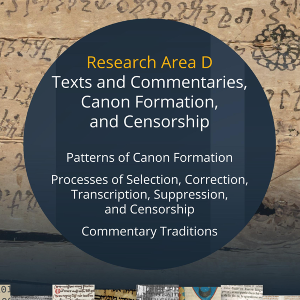Research projects in Research Area D
Here you can find an overview of all research projects and the corresponding job advertisements in Research Area D (Texts and Commentaries, Canon Formation, and Censorship).

Here you can find an overview of all research projects and the corresponding job advertisements in Research Area D (Texts and Commentaries, Canon Formation, and Censorship).
